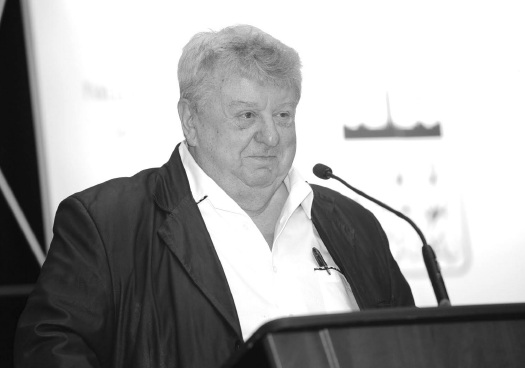 After the
CUPP White Paper Conference concluded, I asked Ihor Bardyn to share
his opinion about how the workshop went on and his plans for the
future.
After the
CUPP White Paper Conference concluded, I asked Ihor Bardyn to share
his opinion about how the workshop went on and his plans for the
future.Post CUPP Conference
Interview With Ihor Bardyn
By Roman Tashleetsky,
CUPP Alumni
 After the
CUPP White Paper Conference concluded, I asked Ihor Bardyn to share
his opinion about how the workshop went on and his plans for the
future.
After the
CUPP White Paper Conference concluded, I asked Ihor Bardyn to share
his opinion about how the workshop went on and his plans for the
future.
Mr. Bardyn, are you satisfied with the outcome of the conference?
I would answer this way: I always leave with the satisfied opinion after a final selection meeting or after one of the first four conferences, and certainly very much so after the workshop. Especially after the workshop because it’s the first one of the so-called conferences where the conference didn’t just happen and people listened to speeches and left but people have actually gone out to work in four groups, have discussed items which are very important to Ukraine, and now these items, these recommendations will be presented to the Ukrainian government and the Canadian government and anyone else that should receive these recommendations.
But also I’m satisfied because I see there is a progress in how the CUPP program and the people that finished it operate. In the first conference in George Washington University in 2010, let’s assume there were 20-25 CUPP students. Out of them, when it comes to the discussion part, only a few would take part. When you fast-forward to come to 2013… first of all, it’s not so much even how many participated in the discussion, the fact is that out of 24 speakers 11 were CUPP alumni who had an expertise that they could share with the rest of the CUPPers and the guests. And therefore, of course, I’m very satisfied because I see progress.
Some participants expressed concerns that the government would simply ignore these recommendations. What is your viewpoint on this?
That’s not my fear. My expectation is that’s exactly that’s going to happen because that’s what happens to most resolutions of most think tanks, of most university forums when they make recommendations to the governments. When the governments say they’ve read them but apparently they never act on them, they never do anything. That’s reality of life. That is not the purpose of going through the exercises like this. Part of it is to educate everyone who is here. Everyone must have left with a little bit more understanding and knowledge even if they listened to how the resolutions were prepared, but more important to how the talks that framed the opinions of people within the group worked. First, there was great sharing of information. Second, the fact that the government may disregard it, as I said, is to be expected, but again, it’s education of a larger group because even people who reject them in the government, but who will read them, will be educated in the process. So there is education of people who is in charge of this country. But the most important thing is the influence the resolution it’ll have on the general population. If we can have popular media to spread this information, it’ll accomplish this purpose. If this conference actually leads to changes, it’s almost like you’re getting a gift without having worked for it because calling a conference and passing resolutions is not a difficult thing. It’s the implementation that’s difficult. So if you get it implemented, you get to consider it’s a terrific bonus. So I’m not at all disappointed that the government may not consider it, but something tells me it doesn’t matter whether they consider it, they’ve already heard about this conference.
PHOTO
Executive Director CUPP Ihor Bardyn